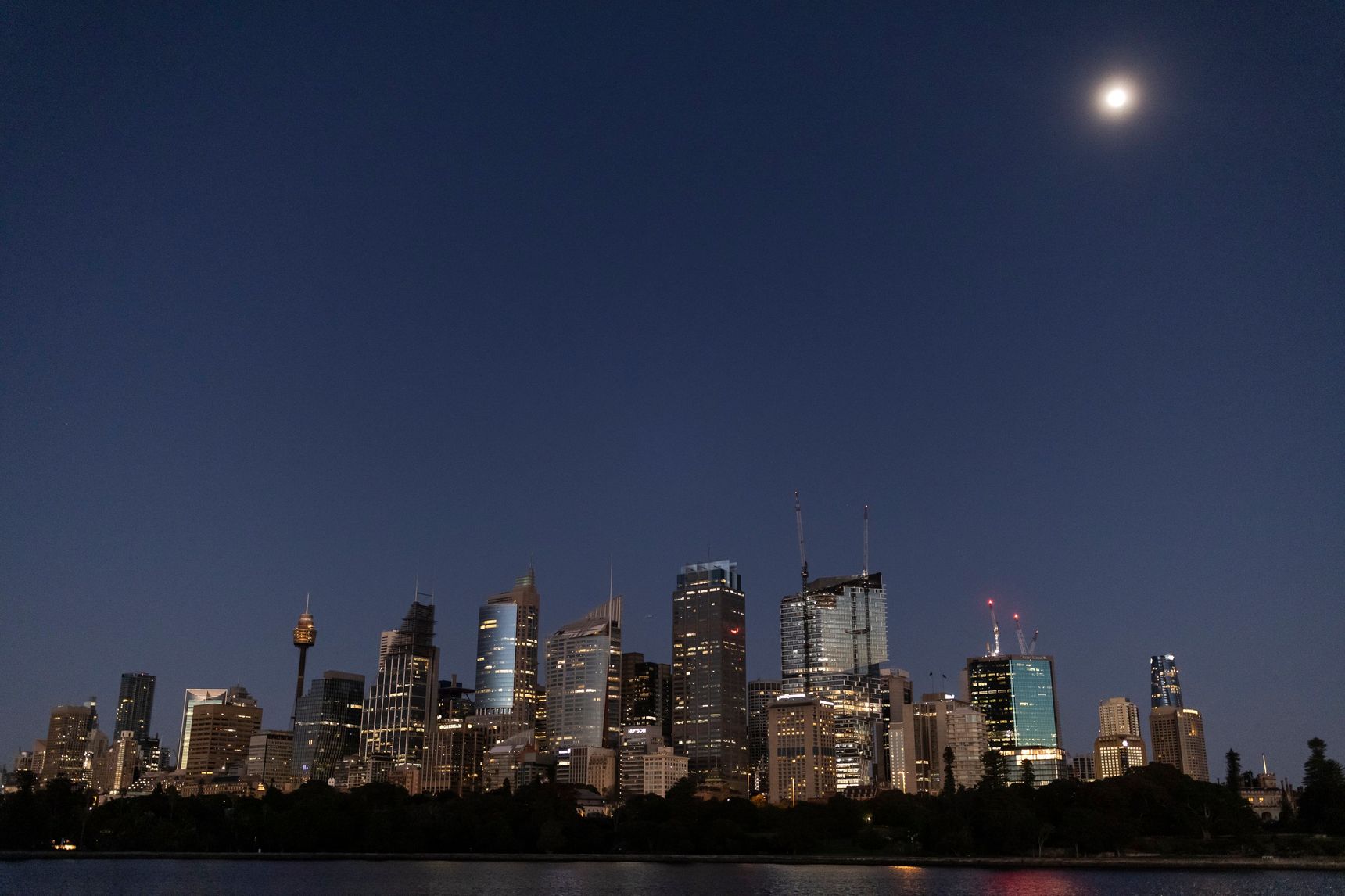Australia Takes Centre Stage in Global Deals Spree
It’s boom time as local M&A’s soar.
Australia’s biggest airport is resisting a takeover. An American private equity firm wants to buy one of the country’s main casino operators. And last week, Square Inc. agreed to buy Afterpay Ltd., the largest locally listed tech company, for $39 billion.
A deals frenzy is underway in Australia.
The volume of mergers and acquisitions in Australia is already at its highest annual level on record with nearly five months of the year to go. More than US$134 billion in pending and completed deals have been announced this year, according to data provider Dealogic. That already outpaces 2011, Australia’s previous busiest year on record, when just under $134 billion was announced for the entire year.
“We’re firing on all cylinders,” said Zac Fletcher, the co-head of investment banking in Australia for Goldman Sachs, which is advising Afterpay in the Square transaction. “It’s hard to really point to a time that’s been busier.”
The boom is driven in part by low interest rates, which make it cheaper to finance acquisitions and generally push investors into higher-risk assets for better returns. The low rates have helped send equity prices to record highs, making it more financially viable for companies to use stock to pay for deals. And corporations, many of which raised cash and sold off assets during the coronavirus pandemic, are now flush with money and looking to buy as the global economy recovers.
Those trends are at play in other markets, including the U.S., where deal making has also risen. But Australia has other factors turbocharging deal volumes: Large pension funds that bankers say are becoming more active in acquisitions; infrastructure assets with revenues offering stable long-term growth; and startups, particularly in the tech space, that are expanding globally and attracting attention from overseas acquirers. Meanwhile, concerns about environmental and social factors are also prompting some companies to review their business models and consider spin offs or acquisitions.
Australia is “suddenly on the radar again,” said Aidan Allen, head of Australia investment banking at Jarden. Aside from working on mergers and buyouts, Mr. Allen said bankers at Jarden, an investment and advisory firm, are spending half their time advising companies concerned by the prospect of hostile takeovers or unsolicited proposals given the heated environment for deals.
Australia also has a strong consumer economy that is underpinned by resource exports and went nearly three decades without a recession until the coronavirus pandemic hit. That combined with strong corporate governance and accounting practices at local businesses and a sophisticated legal system makes overseas companies comfortable investing in Australia, bankers said.
Many bankers expect deal volumes in Australia to remain elevated in the near future, although there are some longer-term risks. Concerns about global inflation could prompt central banks to raise interest rates sooner than expected and the highly contagious Delta strain of the coronavirus could derail the global economic recovery and reduce corporate appetite for large transactions.
“Things can and do change rapidly,” said Julian Longstaff, managing director of global capital markets at Commonwealth Bank of Australia, the nation’s largest bank, which arranges financing for many deals.
“If you have a big deal at valuations that work, it’s best to bring it to the market and get it done while demand is strong,” he said.
Previous deal-making booms haven’t been sustained. Cross-border investment from China drove a wave of deals in past years, but Australia’s tightening of foreign investment rules and a diplomatic spat has cooled Chinese interest recently. Even some U.S. business leaders have worried the rules make it difficult for American companies to invest, though bankers say the current boom is driven by a combination of Australian, U.S. and European acquirers.
What would be Australia’s two biggest-ever deals were unveiled in just in the past few weeks. Square’s $29 billion all-stock offer for Afterpay would be Australia’s largest on record and given the strategic rationale analysts expect it to be completed. That deal came weeks after a consortium of infrastructure investors, including Australian pension fund managers, made a nearly $17 billion dollar bid for Sydney Airport. The airport rejected the initial offer saying it was too low, though the consortium could increase its bid.
A survey released last month from accounting giant Deloitte, which has been polling Australian executives annually in recent years, found that 95% expected the number of deals their companies would pursue to increase or remain stable over the next 12 months.
“We’ve never seen that level of enthusiasm,” said Ian Turner, national head of mergers and acquisitions for Deloitte Australia.
Other big deals this year include the roughly $8 billion bid from private-equity firm Blackstone Group Inc. for Australian casino operator Crown Resorts Ltd. A Canadian pension fund, the Ontario Teachers’ Pension Plan Board, and private-equity firm KKR & Co. want to buy Spark Infrastructure Group, which owns electricity assets, for about $5.1 billion. And Oil Search Ltd., the biggest oil producer in Papua New Guinea, recently said it intends to recommend an all-stock takeover from Santos Ltd. to create an energy company worth $21.7 billion.
“It’s an incredible moment in time,” said Joe Fayyad, country head and co-head of investment banking for Bank of America in Australia. “Australia is becoming more recogn=ised for the opportunities it can provide.”
 Copyright 2020, Dow Jones & Company, Inc. All Rights Reserved Worldwide. LEARN MORE
Copyright 2020, Dow Jones & Company, Inc. All Rights Reserved Worldwide. LEARN MORE
This stylish family home combines a classic palette and finishes with a flexible floorplan
Just 55 minutes from Sydney, make this your creative getaway located in the majestic Hawkesbury region.
Continued stagflation and cost of living pressures are causing couples to think twice about starting a family, new data has revealed, with long term impacts expected
Australia is in the midst of a ‘baby recession’ with preliminary estimates showing the number of births in 2023 fell by more than four percent to the lowest level since 2006, according to KPMG. The consultancy firm says this reflects the impact of cost-of-living pressures on the feasibility of younger Australians starting a family.
KPMG estimates that 289,100 babies were born in 2023. This compares to 300,684 babies in 2022 and 309,996 in 2021, according to the Australian Bureau of Statistics (ABS). KPMG urban economist Terry Rawnsley said weak economic growth often leads to a reduced number of births. In 2023, ABS data shows gross domestic product (GDP) fell to 1.5 percent. Despite the population growing by 2.5 percent in 2023, GDP on a per capita basis went into negative territory, down one percent over the 12 months.
“Birth rates provide insight into long-term population growth as well as the current confidence of Australian families,” said Mr Rawnsley. “We haven’t seen such a sharp drop in births in Australia since the period of economic stagflation in the 1970s, which coincided with the initial widespread adoption of the contraceptive pill.”
Mr Rawnsley said many Australian couples delayed starting a family while the pandemic played out in 2020. The number of births fell from 305,832 in 2019 to 294,369 in 2020. Then in 2021, strong employment and vast amounts of stimulus money, along with high household savings due to lockdowns, gave couples better financial means to have a baby. This led to a rebound in births.
However, the re-opening of the global economy in 2022 led to soaring inflation. By the start of 2023, the Australian consumer price index (CPI) had risen to its highest level since 1990 at 7.8 percent per annum. By that stage, the Reserve Bank had already commenced an aggressive rate-hiking strategy to fight inflation and had raised the cash rate every month between May and December 2022.
Five more rate hikes during 2023 put further pressure on couples with mortgages and put the brakes on family formation. “This combination of the pandemic and rapid economic changes explains the spike and subsequent sharp decline in birth rates we have observed over the past four years,” Mr Rawnsley said.
The impact of high costs of living on couples’ decision to have a baby is highlighted in births data for the capital cities. KPMG estimates there were 60,860 births in Sydney in 2023, down 8.6 percent from 2019. There were 56,270 births in Melbourne, down 7.3 percent. In Perth, there were 25,020 births, down 6 percent, while in Brisbane there were 30,250 births, down 4.3 percent. Canberra was the only capital city where there was no fall in the number of births in 2023 compared to 2019.
“CPI growth in Canberra has been slightly subdued compared to that in other major cities, and the economic outlook has remained strong,” Mr Rawnsley said. “This means families have not been hurting as much as those in other capital cities, and in turn, we’ve seen a stabilisation of births in the ACT.”
This stylish family home combines a classic palette and finishes with a flexible floorplan
Just 55 minutes from Sydney, make this your creative getaway located in the majestic Hawkesbury region.






















